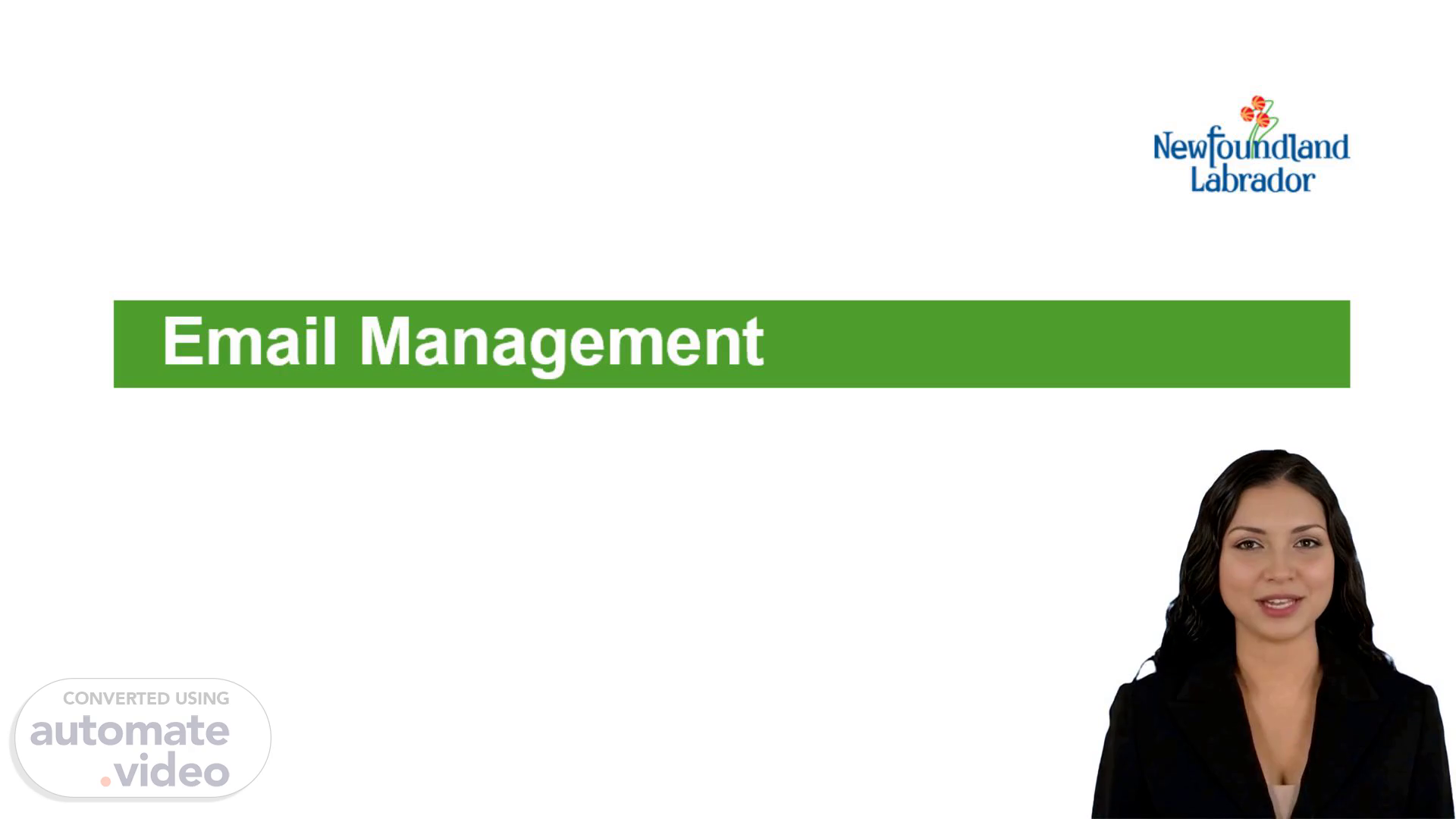Scene 1 (0s)
[Virtual Presenter] Hello and welcome to our training video on email management. As a teacher in higher education, I have witnessed firsthand the significant influence of email on our daily communication. This presentation will explore tips and strategies for utilizing email efficiently in both personal and professional contexts. Let us now delve into learning how to excel in email management..
Scene 2 (24s)
[Audio] The Government of Newfoundland and Labrador owns all email and the information within these accounts. Once an email is sent, the sender loses control over its distribution. All email, regardless of content, are subject to ATIPP. However, there are legislative exceptions that can be used to withhold personal information. All employees and contractors are responsible for protecting the information they create, share and maintain on behalf of the Government of Newfoundland and Labrador - including emails. Employees must familiarize themselves with relevant policies, guidelines and best practices..
Scene 3 (59s)
[Audio] Email management demands careful handling of confidential and private information. Verify the email address to prevent accidental sending to the wrong recipient. Limit recipients to those who truly need to know and remove personal identifiers. Use a password-protected (encrypted) zipped file when sharing sensitive files and consult the Office of the Chief Information Officer's website for guidance on encryption. Keep passwords confidential and do not share them via email. For large-scale file transfers, consider using Kiteworks, a managed file transfer service providing a seven-day window for recipients to download and store documents properly..
Scene 4 (1m 38s)
[Audio] Email has become the primary mode of communication in both personal and professional settings. With this convenience comes the risk of cyber threats such as phishing, viruses, and spam. Carefully reviewing the sender and content of emails before opening them, especially those from unknown sources, is crucial. The Office of the Chief Information Officer has introduced a Report Phishing button in Outlook, allowing users to report suspicious emails to the Security Team. Never share login IDs or passwords, and never send passwords via email to protect sensitive information..
Scene 5 (2m 13s)
[Audio] Government employees should never email government information to their personal or home email accounts, such as Gmail, Yahoo, and others. Instead, government emails must be filed appropriately and captured in an official government records storage area, which includes electronic content management systems like ISM or HPRM, the network shared drive, or in paper files. This is crucial to ensure that government records are easily accessible in case of operational requirements, access to information requests, litigations, and other situations..
Scene 6 (2m 49s)
[Audio] Do not use email for discussions that can be handled through a telephone conversation or Microsoft Teams chat. Consider using a phone call to discuss sensitive and/or confidential topics..
Scene 7 (3m 1s)
[Audio] When composing an email, it's essential to maintain professionalism in its content, tone, and appearance. Avoiding unnecessary comments and keeping the message concise is crucial. As emails are subject to ATIPP requests, we must ensure that they contain only information that would also be included in a signed paper document. We should never include comments that might be uninformed or offensive, and avoid using unnecessary uppercase and exclamation marks. Our signature block should be brief and simple, without any backgrounds or graphics..
Scene 8 (3m 31s)
[Audio] When crafting an email, it's essential to keep messages concise and to the point. Aim for a length of 50 to 125 words, as this has been shown to yield a response rate greater than 50%. To achieve this, focus on one topic per message, ensuring clarity and proofreading before hitting send. Remember that the content and tone of your email reflect not only yourself but also your department. By adhering to these guidelines, you'll be well on your way to effective email communication..
